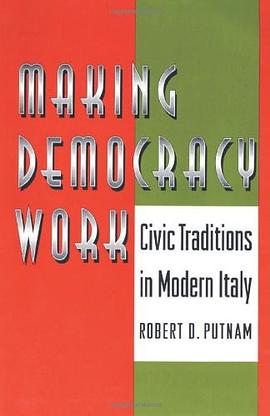Making Democracy Work
内容简介
Why do some democratic governments succeed and others fail? In a book that has received attention from policymakers and civic activists in America and around the world, Robert Putnam and his collaborators offer empirical evidence for the importance of "civic community" in developing successful institutions. Their focus is on a unique experiment begun in 1970 when Italy created new governments for each of its regions. After spending two decades analyzing the efficacy of these governments in such fields as agriculture, housing, and health services, they reveal patterns of associationism, trust, and cooperation that facilitate good governance and economic prosperity.
......(更多)
作者简介
Robert D. Putnam is the Peter and Isabel Malkin Professor of Public Policy at Harvard, where he teaches both undergraduate and graduate courses. Professor Putnam is a member of the National Academy of Sciences, a Fellow of the British Academy, and past president of the American Political Science Association. In 2006, Putnam received the Skytte Prize, one of the world's highest accolades for a political scientist. Raised in a small town in the Midwest and educated at Swarthmore, Oxford, and Yale, he has served as Dean of the Kennedy School of Government.
He has written fourteen books, translated into twenty languages, including the best-selling Bowling Alone: The Collapse and Revival of American Community, and more recently Better Together: Restoring the American Community, a study of promising new forms of social connectedness. His previous book, Making Democracy Work, was praised by the Economist as "a great work of social science, worthy to rank alongside de Tocqueville, Pareto and Weber." Both Making Democracy Work and Bowling Alone are among the most cited publications in the social sciences worldwide in the last half century.
......(更多)
目录
......(更多)






